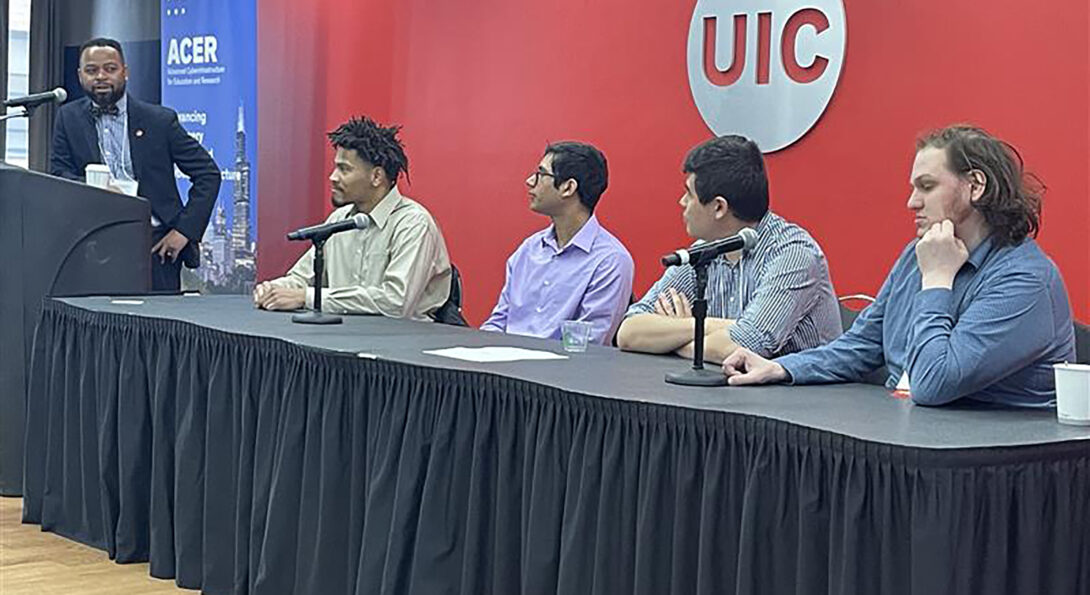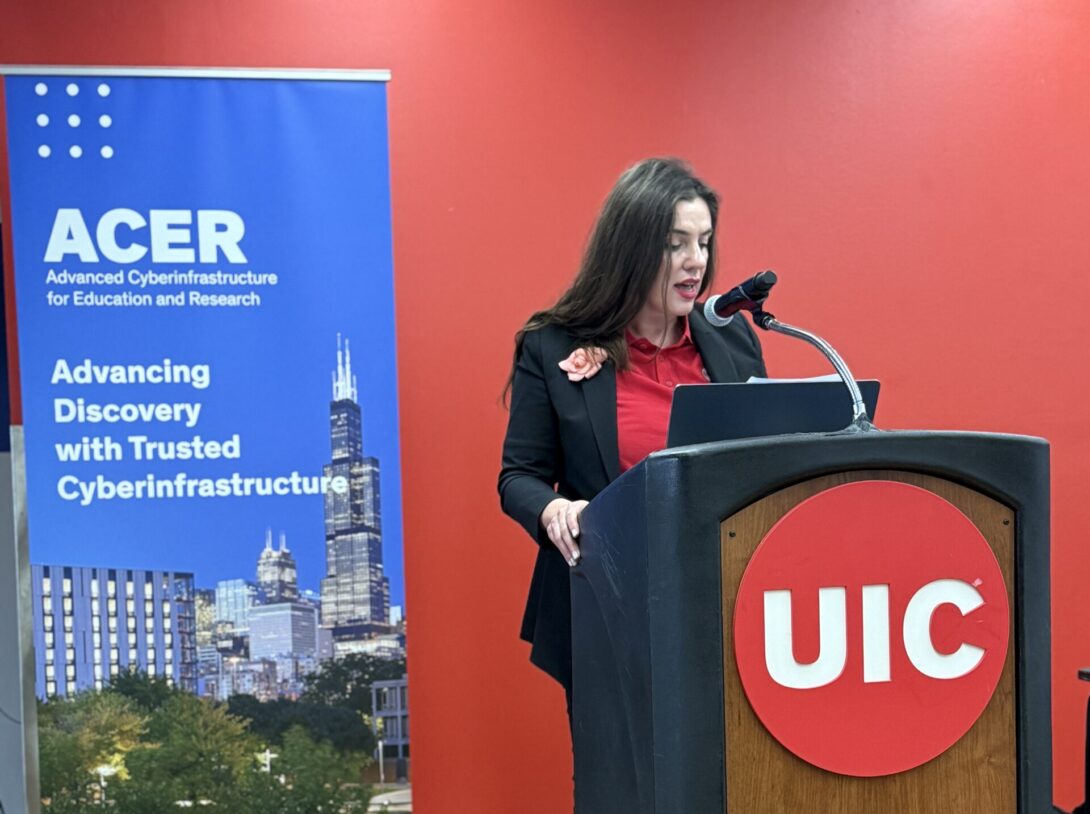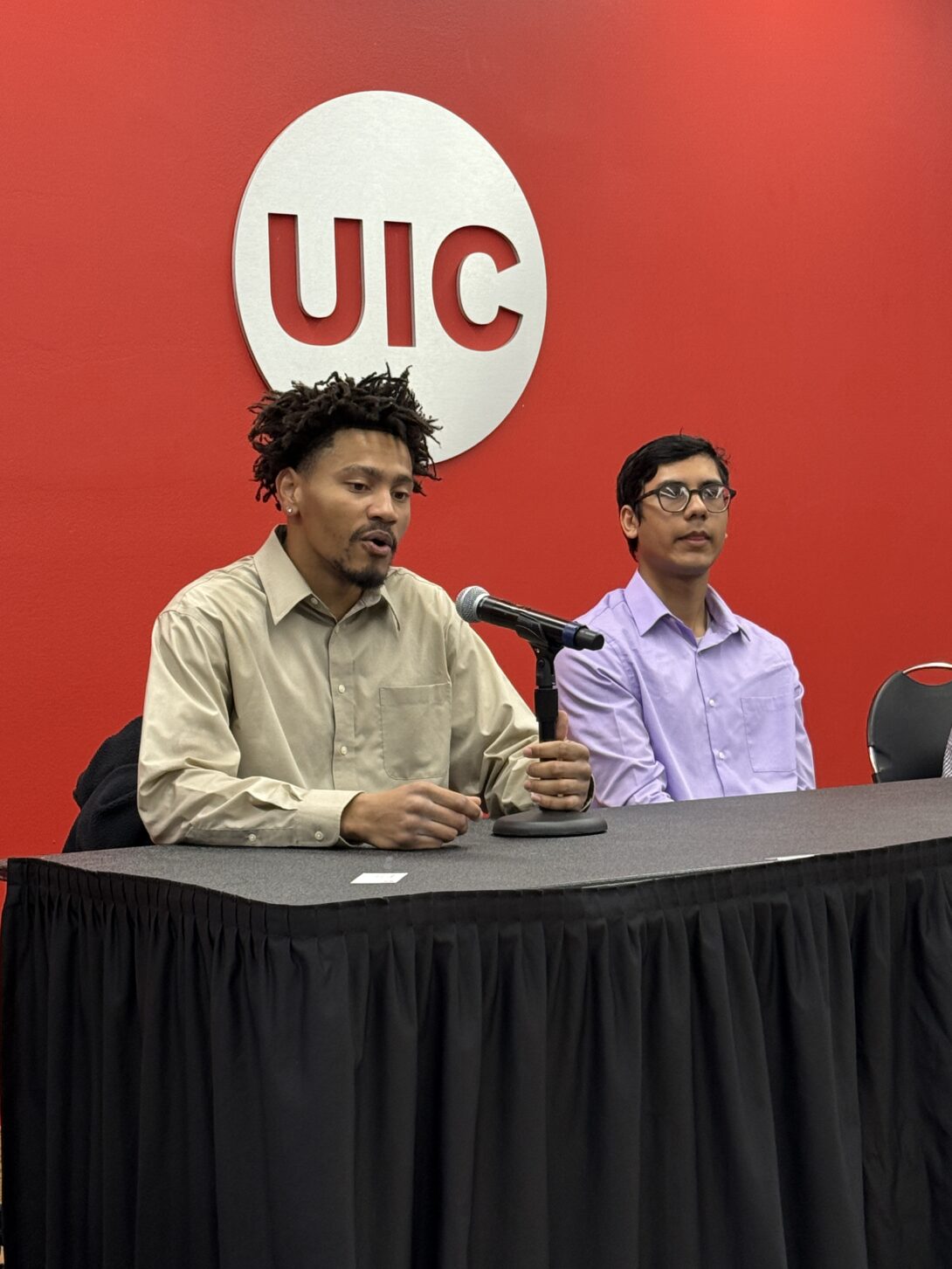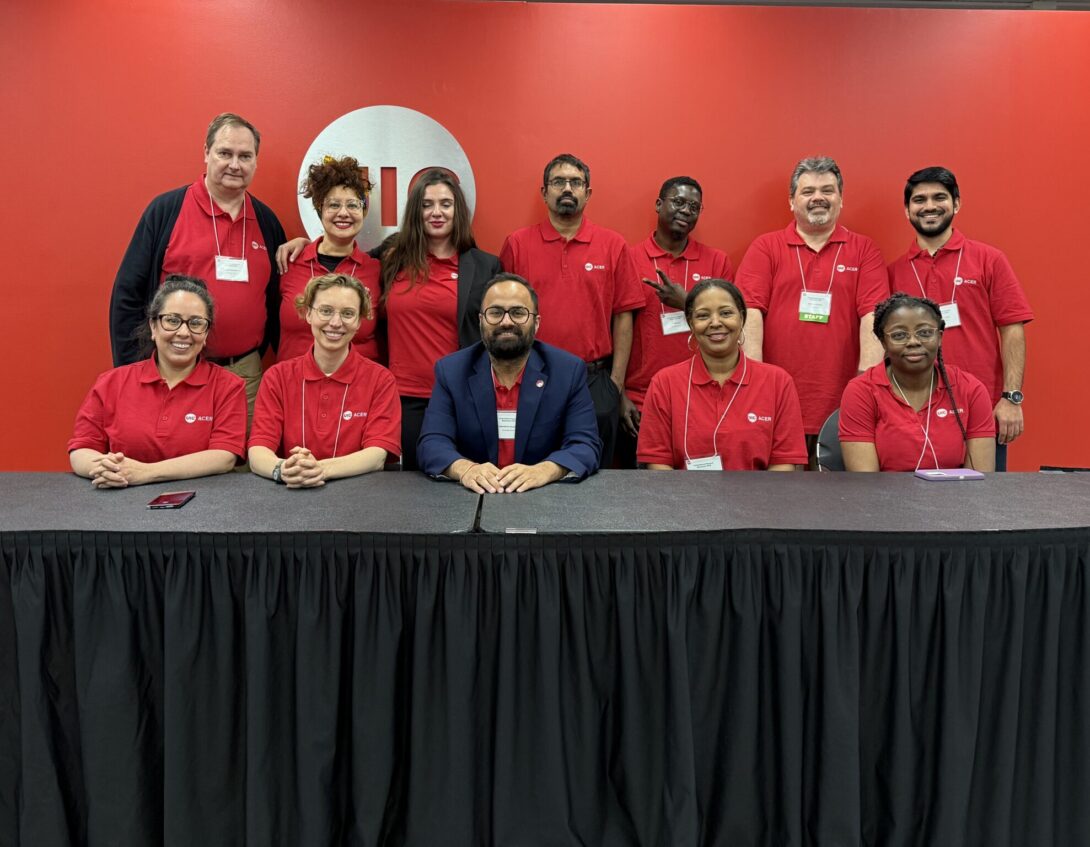UIC Hosts 2025 Computational Research Symposium in Partnership with Argonne National Laboratory

Introduction
As part of UIC Research Week, UIC partnered with Argonne National Laboratory to host the 2025 Computational Research Symposium on April 21. Organized by UIC’s Advanced Cyberinfrastructure for Education and Research (ACER), the event served as a hub for faculty, students, and staff to share their work and engage with cutting-edge developments in high-performance computing and data science.
Running from 8:30 AM to 2:00 PM, the symposium featured presentations, panel discussions, and a competitive poster session. Topics ranged from generative AI and computational data analysis to the integration of advanced cyberinfrastructure in scientific research.
P1

“UIC’s computational research symposium spotlights the important work our faculty and students are doing to contribute both to methodological innovation and substantive research,” said Ian Kennedy, Assistant Professor of Sociology. “One of my favorite aspects of the symposium is that it highlights the diverse group of researchers—by discipline, by race, by gender, and by method—using computational methods at UIC.”
A key highlight of the day was the poster session, which showcased data visualizations and computational techniques applied across disciplines. Abstracts were reviewed by the CRS 2025 Program Committee, with priority given to early submissions. Final selections were announced by April 7.
Q1
What an incredible way to start UIC’s Research Week — a packed room, vibrant student posters, and powerful discussions spanning AI, health, quantum, and more. The engagement, diversity, and energy throughout the day were a clear reminder that #ResearchMatters — not just for discovery, but for inspiring what’s possible. Grateful to be part of this momentum.
| Associate CIO for Research Technologies and Innovation
P2

A key feature of the event was the poster session, which highlighted research from across the university. Poster submissions demonstrated computational methods and data visualizations with clear relevance to specific research domains. Abstracts were submitted in advance and reviewed by the CRS 2025 Program Committee.
“As a clinician and researcher, this symposium opened my eyes to the deep expertise and resources available to the UIC community,” said Ameen Salahudeen, Assistant Professor at the Department of Medicine. “I was able to learn about others’ research and connected with new researchers to discuss future collaborations. The valuable learnings from this symposia will help our research and spark new application ideas for our team to work on. I look forward to participating in future symposia and see the progress of the research at UIC.”
P4

The symposium attracted a broad audience of researchers at varying levels of expertise, including those seeking guidance in integrating computational tools into their own work. The event offered an opportunity for attendees to build connections, exchange insights, and learn from a wide range of disciplines.
“The Computational Research Symposium represents an acknowledgment of the interdisciplinary nature of computational research and quantum information science, which share a huge intersection,” said graduate student Caleb Williams. “As PsiQuantum continues to build the Illinois Quantum Microelectronics Park on the South Side of Chicago, I see a very bright future full of opportunities for us all. I want to play my part in fostering a relationship towards this common goal,” he said.
Complimentary coffee and lunch helped foster a collaborative and productive atmosphere throughout the day. Additional details, including future initiatives, can be found on the Computational Research Symposium website.